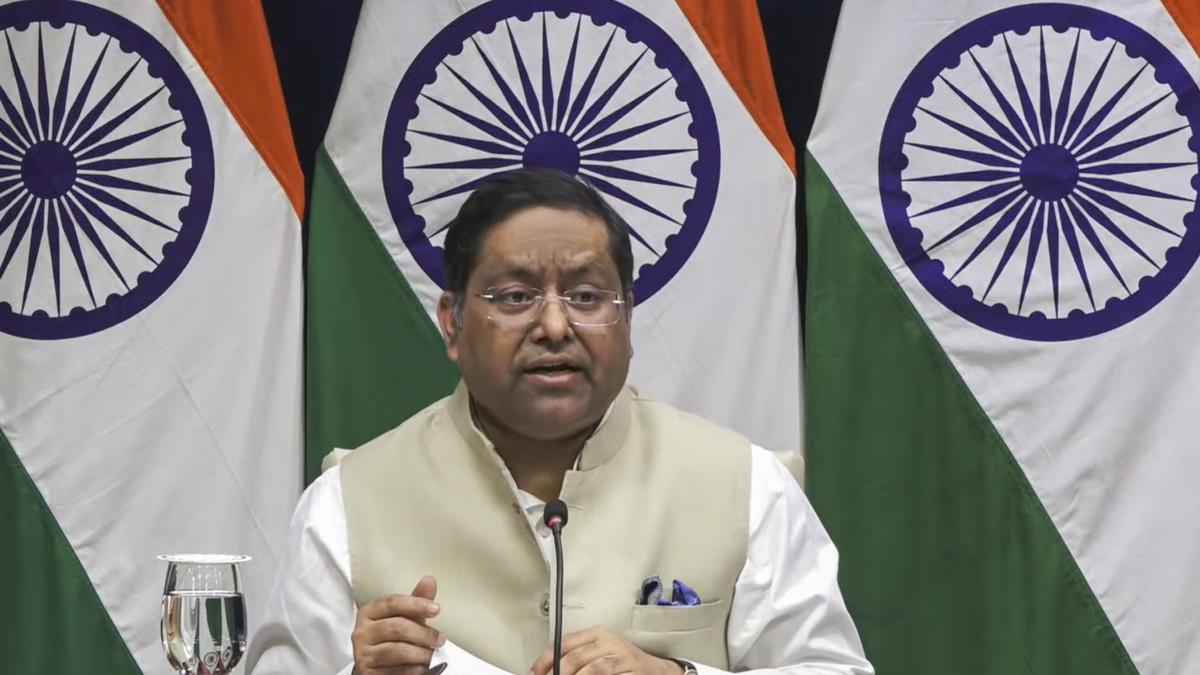NEW DELHI: NITI Aayog CEO B V R Subrahmanyam on Wednesday said India is committed to climate-friendly growth, but fossil fuels (mainly coal/lignite) are still going to drive the country’s economic growth, and noted that the government’s think tank will in November come out with a roadmap for energy transition and a pathway to achieve the country’s 2070 ‘net zero’ carbon emissions goal.
“This is one of the most challenging times for India. We have the challenge of growth, jobs and energy consumption which we have to balance with environmental considerations. It is no longer about growth or sustainability but growth and sustainability,” said Subrahmanyam while speaking at an event – Connect Karo 2024 – organised here by a research organisation, WRI India.
He said, “NITI Aayog is working with states in developing a roadmap for supporting energy transition across sectors…we will come out with a document in November.”
A pathway to achieve the country’s ‘net zero’ emission goal of 2070 is expected to help India in articulating its plan of mitigation actions at multilateral forums, specifically at the UN climate conference (COP29) in Baku, Azerbaijan in November. It will also provide a broad framework for the next update of India’s Nationally Determined Contribution (NDC) – climate action goals – which may happen in 2025.
Subrahmanyam’s remarks on continuing use of fossil fuels are also in sync with the reality on the ground. Though renewable energy has got a massive push in India, coal/lignite would still account for about 32% of the country’s estimated installed capacity of 777 GW in 2030 to meet its projected peak demand.
There has been a small decline in the proportion of installed capacity of coal/lignite from about 55% in 1947 to about 50% in 2024. Further decline is expected to be faster, but fossil fuels would continue to be the mainstay of India’s development-led energy transition.
“The growth and rise of India is undeniable but it is happening in times which are very different. This is the first time in the history of mankind that a large country is seeking its future to be a developed nation, ‘Viksit Bharat at 2047’, in an environment where climate change is an ever-present threat and technological changes like AI are not just minor disruptions,” said Subrahmanyam in his opening remark at a session on ‘Pathways to Low Carbon Equitable Development in India’.
On the sidelines of the two-day event, the National Institute of Urban Affairs (NIUA) and WRI India have entered into a Memorandum of Understanding (MoU) to establish a national-level project preparation facility.
“This initiative aims to offer early-stage support for adaptation and resilience projects across Indian cities. The platform will provide technical assistance for identifying, developing, and appraising climate adaptation and resilience (A&R) projects, to help cities prepare bankable and investible project proposals, thereby enabling better access to climate finance,” said a WRI India statement.
“This is one of the most challenging times for India. We have the challenge of growth, jobs and energy consumption which we have to balance with environmental considerations. It is no longer about growth or sustainability but growth and sustainability,” said Subrahmanyam while speaking at an event – Connect Karo 2024 – organised here by a research organisation, WRI India.
He said, “NITI Aayog is working with states in developing a roadmap for supporting energy transition across sectors…we will come out with a document in November.”
A pathway to achieve the country’s ‘net zero’ emission goal of 2070 is expected to help India in articulating its plan of mitigation actions at multilateral forums, specifically at the UN climate conference (COP29) in Baku, Azerbaijan in November. It will also provide a broad framework for the next update of India’s Nationally Determined Contribution (NDC) – climate action goals – which may happen in 2025.
Subrahmanyam’s remarks on continuing use of fossil fuels are also in sync with the reality on the ground. Though renewable energy has got a massive push in India, coal/lignite would still account for about 32% of the country’s estimated installed capacity of 777 GW in 2030 to meet its projected peak demand.
There has been a small decline in the proportion of installed capacity of coal/lignite from about 55% in 1947 to about 50% in 2024. Further decline is expected to be faster, but fossil fuels would continue to be the mainstay of India’s development-led energy transition.
“The growth and rise of India is undeniable but it is happening in times which are very different. This is the first time in the history of mankind that a large country is seeking its future to be a developed nation, ‘Viksit Bharat at 2047’, in an environment where climate change is an ever-present threat and technological changes like AI are not just minor disruptions,” said Subrahmanyam in his opening remark at a session on ‘Pathways to Low Carbon Equitable Development in India’.
On the sidelines of the two-day event, the National Institute of Urban Affairs (NIUA) and WRI India have entered into a Memorandum of Understanding (MoU) to establish a national-level project preparation facility.
“This initiative aims to offer early-stage support for adaptation and resilience projects across Indian cities. The platform will provide technical assistance for identifying, developing, and appraising climate adaptation and resilience (A&R) projects, to help cities prepare bankable and investible project proposals, thereby enabling better access to climate finance,” said a WRI India statement.






